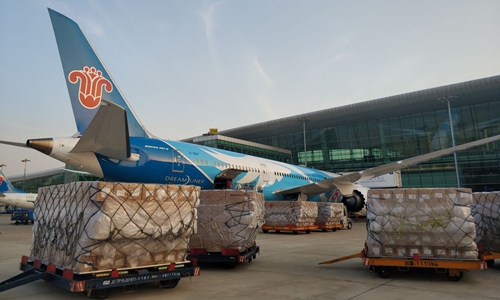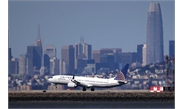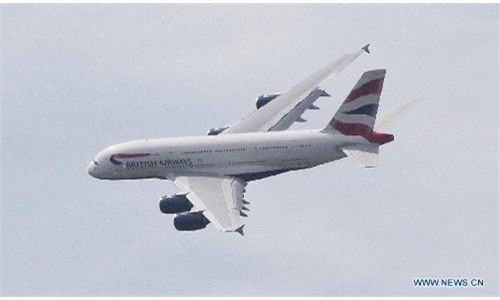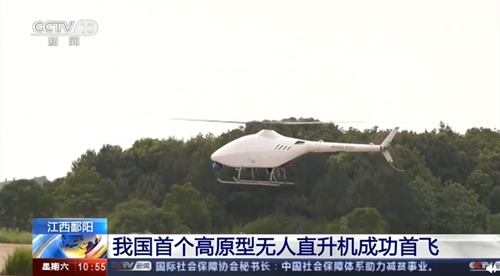SOURCE / INDUSTRIES
Flight tit-for-tat will hit many US firms

Tons of medical supplies are to be loaded onto a China Southern Airlines flight for New York at an airport in Wuhan, central China's Hubei Province, on April 24, 2020. (Provided to Xinhua)
US airlines might be taking the most direct and biggest blow from the suspension of flights to China, but other US businesses in a wide range of sectors such as Apple and Qualcomm are also taking a hit. Those companies have become an important driving force in pushing for resumption of flights to China, insiders said on Tuesday.
"It is clear that the driving force is from the US enterprises that have close business ties in China, reading from US airlines' destinations in China," an insider surnamed Li told the Global Times on Tuesday.
United Airlines has daily flights from San Francisco and New York to Shanghai and Beijing, and both cities in the US are full of giants such as Apple. Delta's major trans-Pacific customers are in Seattle's retailing and software industries, and Detroit's automotive industry, such as General Motors, Li explained.
Delta Air Lines said last week it hopes to resume daily passenger flights from Seattle and Detroit to Shanghai in June, but the plan is still pending approval from the Chinese government.
United Airlines is reportedly planning a strong return to China in June and hopes to resume passenger services with four routes to three cities - Beijing, Chengdu, and Shanghai.
Like their peers, the two airlines temporarily suspended all flights to China from January 30 amid concerns from pilots and cabin crew, but Chinese airlines kept flying.
The number of flights between China and the US fell steeply in February, with an almost 80.2 percent decline compared with January, according to data from industry information provider VariFlight.
"The Chinese market is vital for those enterprises in the US, and their business trips are vital for US airlines. The companies urgently want to get back to China, putting the airlines under heavy pressure," Li added.
Data from GM's website showed that China was the largest market for the company from 2017 to 2019, accounting for 40 percent of its sales.
Chip manufacturers such as Qualcomm and Intel are also heavily dependent on the Chinese market. For fiscal year 2019, which ended in September 2019, roughly 48 percent of Qualcomm's revenues, or $11.6 billion, came from its business with China. Among its clients or licensees that have contributed tremendously to Qualcomm's revenues are Apple and Chinese phone vendors including Oppo, Vivo and Xiaomi, according to Qualcomm's fiscal disclosure.
For Tesla, China is also the most important market. It claims that localized production is critical to its development and sales in China, the world 's largest electric vehicle market.
"In contrast to some global narratives, our China-based data suggests that the majority of our members will not be packing up and leaving China anytime soon," said Alan Beebe, president of AmCham China, adding that over 70 percent of surveyed companies said that in the short term they have no plans yet to relocate production and supply chain operations or sourcing outside of China due to COVID-19.
United reported $40.8 billion in revenue for 2019, and about 4 percent of that was from China, according to Forbes. Delta, which reported revenue of $43 billion for 2019, also got about 4 percent of its revenue from the country, according to Forbes.
So far, the carriers said they have not received approval from China's civil air regulator.
"We continue to evaluate the feasibility of resuming service to China upon government approval. We have not made any announcements about restarting service at this time." United Airlines said in a reply to the Global Times on Tuesday.
"As of today, we are still waiting for government approval regarding Delta's restart of passenger flights to China," Delta said in a reply to the Global Times on Tuesday.
China's government launched its "Five One" policy at the end of March in a bid to curb the COVID-19 pandemic, allowing each airline to serve one country, from one Chinese city to one foreign city, with no more than one flight a week.
Chinese carriers will still follow strict flying policies in June.
Foreign Ministry spokesperson Zhao Lijian said on Monday that China had noted that relevant US departments had asked Chinese airlines to file flight schedules, but China opposed any possible US disruption of or restriction on Chinese airlines' normal passenger flight operations, as all airlines, Chinese and foreign, are treated equally.




